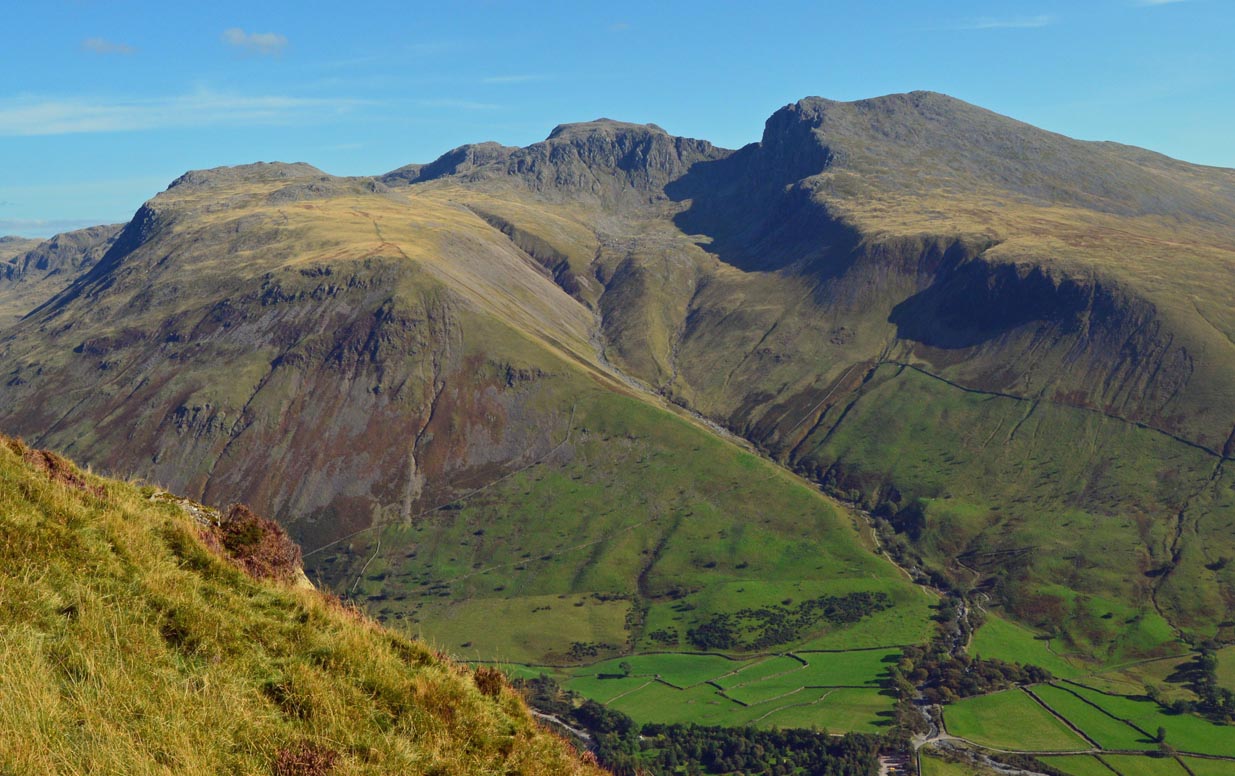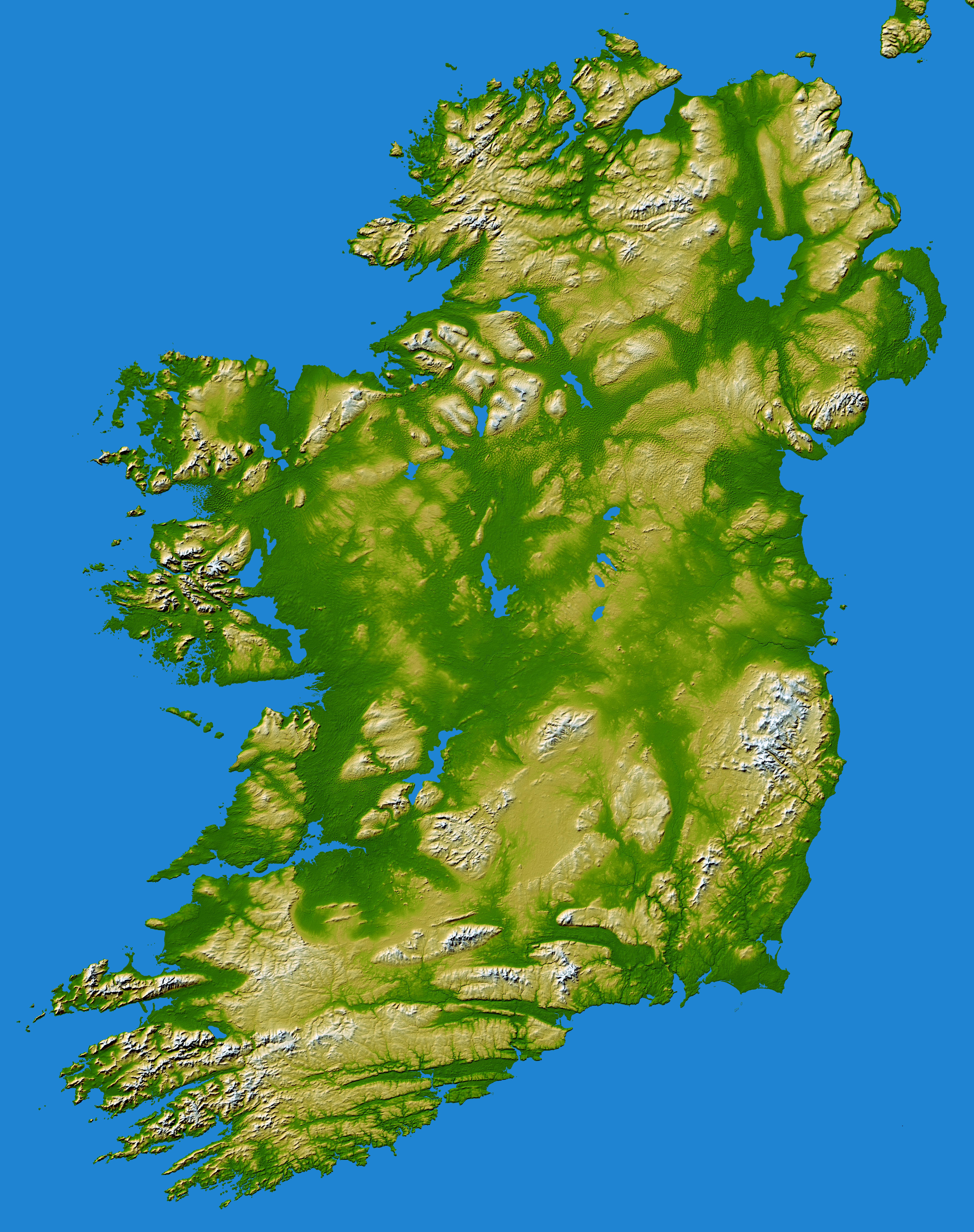|
Mountains Of The United Kingdom
This is a list of mountains in Britain and Ireland by height and by prominence. Height and prominence are the most important metrics for the classifications of mountains by the UIAA; with isolation a distant third criterion. The list is sourced from the '' Database of British and Irish Hills'' ("DoBIH") for peaks that meet the consensus height threshold for a mountain, namely ; the list also rules out peaks with a prominence below and thus, the list is therefore precisely a list of the 2,756 Simms in the British Isles (as at October 2022). Many classifications of mountains in the British Isles consider a prominence between as being a "top", and not a mountain; however, using the prominence threshold gives the broadest possible list of mountains. For a ranking of mountains with a higher prominence threshold use: * List of Marilyns in the British Isles, for ranking by height and by prominence, of peaks with prominence over ; or * List of P600 mountains in the British Isles, ... [...More Info...] [...Related Items...] OR: [Wikipedia] [Google] [Baidu] |
Lists Of Mountains And Hills In Britain And Ireland
The mountains and hills of the British Isles are categorised into various lists based on different combinations of elevation, prominence, and other criteria such as isolation. These lists are used for peak bagging, whereby hillwalkers attempt to reach all the summits on a given list, the oldest being the 282 Munros in Scotland, created in 1891. A height above 2,000 ft, or more latterly 610 m, is considered necessary to be classified as a mountain – as opposed to a hill – in the British Isles. With the exception of Munros, all the lists require a prominence above . A prominence of between (e.g. some Nuttalls and Vandeleur-Lynams), does not meet the International Climbing and Mountaineering Federation (UIAA) definition of an "independent peak", which is a threshold over . Most lists consider a prominence between as a "top" (e.g. many Hewitts and Simms). Marilyns, meanwhile, have a prominence above , with no additional height threshold. They range from small hills to ... [...More Info...] [...Related Items...] OR: [Wikipedia] [Google] [Baidu] |
Maoile Lunndaidh
Maoile Lunndaidh or Maoil Lunndaidh is a Scottish mountain situated 13 km south of Achnasheen in the Ross and Cromarty district of the Highland council area. It is part of the high ground between Loch Monar and Gleann Fhiodhaig. Overview Maoile Lunndaidh is a large and remote mountain, covering an area in excess of . Its location is almost equidistant from the valleys of Strathconon, Strathfarrar and Glen Carron, the nearest public road being over 10 km away. The mountain is listed in the current edition of Munro's Tables as in elevation. This height dates from the introduction of the 1:50k OS map series in the 1970s. However the current 1:25000 map shows a spot height of , in better agreement with the trigonometric height of on old 6-inch maps (equivalent to 1004.1 metres after conversion to the Newlyn datum). Maoile Lunndaidh has been described as "the flattest of bulks"."Hamish‘s Mountain Walk" Page 274 Gives quote: “Flattest of bulks”. Its extensiv ... [...More Info...] [...Related Items...] OR: [Wikipedia] [Google] [Baidu] |
List Of Munro Mountains In Scotland
This is a list of Munro mountains and Munro Tops in Scotland by height. Munros are defined as Scottish mountains over in height, and which are on the Scottish Mountaineering Club ("SMC") official list of Munros. In addition, the SMC define Munro Tops, as Scottish peaks above that are not considered Munros. Where the SMC lists a Munro Top, due to "insufficient separation", it will also list the "Parent Peak", a Munro, of the Munro Top. As of 6 September 2012, there were 282 Scottish Munros after the SMC confirmed that Beinn a' Chlaidheimh had been downgraded to a Corbett and as of 10 December 2020, there were 226 Scottish Munro Tops after Stob Coire na Cloiche, a Munro Top to Parent Peak Sgùrr nan Ceathramhnan, was surveyed at 912.5m and was deleted as a Munro Top and downgraded to a Corbett Top. The current SMC list totals 508 summits. While the SMC does not use a prominence metric for classifying Munros, all but one of the 282 Munros have a prominence above , the exceptio ... [...More Info...] [...Related Items...] OR: [Wikipedia] [Google] [Baidu] |
List Of Mountains In Ireland
In these lists of mountains in Ireland, those within Northern Ireland, or on the Republic of Ireland – United Kingdom border, are marked with an asterisk, while the rest are within the Republic of Ireland. Where mountains are ranked by height, the definition of the topographical prominence used to classify the mountain (e.g. the change in elevation required between neighbouring mountains), is noted. In British definitions, a height of is required for a mountain, whereas in Ireland, a lower threshold of is sometimes advocated. The lowest minimum prominence threshold of any definition of an Irish mountain is (e.g. the Lists of mountains and hills in the British Isles#Vandeleur-Lynams, Vandeleur-Lynam), however most definitions, including the International Climbing and Mountaineering Federation (UIAA) criteria, do not consider prominences below as being mountains (e.g. must at least be an Lists of mountains and hills in the British Isles#Arderins, Arderin or a Lists of mounta ... [...More Info...] [...Related Items...] OR: [Wikipedia] [Google] [Baidu] |
Lists Of Mountains In Ireland
In these lists of mountains in Ireland, those within Northern Ireland, or on the Republic of Ireland – United Kingdom border, are marked with an asterisk, while the rest are within the Republic of Ireland. Where mountains are ranked by height, the definition of the topographical prominence used to classify the mountain (e.g. the change in elevation required between neighbouring mountains), is noted. In British definitions, a height of is required for a mountain, whereas in Ireland, a lower threshold of is sometimes advocated. The lowest minimum prominence threshold of any definition of an Irish mountain is (e.g. the Vandeleur-Lynam), however most definitions, including the International Climbing and Mountaineering Federation (UIAA) criteria, do not consider prominences below as being mountains (e.g. must at least be an Arderin or a Hewitt). Many British definitions consider a peak with a prominence below , as being a ''top'', and not a mountain (e.g. must be a Marilyn ... [...More Info...] [...Related Items...] OR: [Wikipedia] [Google] [Baidu] |
Caher West Top
Caher West Top () at , is the fifth-highest peak in Ireland on the Irish Vandeleur-Lynam classification, and part of the MacGillycuddy's Reeks range. Caher West Top is the only Furth to have a prominence below . Geography The mountain is located about 500 metres west of Caher East Top and is part of the MacGillycuddy's Reeks of County Kerry. Caher West Top is often climbed as part of the '' Coomloughra Horseshoe'', which takes 6-8 hours and is described as "one of Ireland’s classic ridge walks". The horseshoe takes in other neighbouring peaks such as Carrauntoohil, Beenkeragh, The Bones (including the '' Beenkeragh Ridge''), Skregmore, and Cnoc Iochtair. Climbers refer to the narrow path that runs along the top of Caher West Top and neighboring Caher, as '' Caher Ridge''. Caher West Top is regarded by the Scottish Mountaineering Club ("SMC") as one of 34 Furths, which is a mountain above in elevation, and meets the other SMC criteria for a Munro (e.g. "suf ... [...More Info...] [...Related Items...] OR: [Wikipedia] [Google] [Baidu] |


_-_geograph.org.uk_-_1434483.jpg)